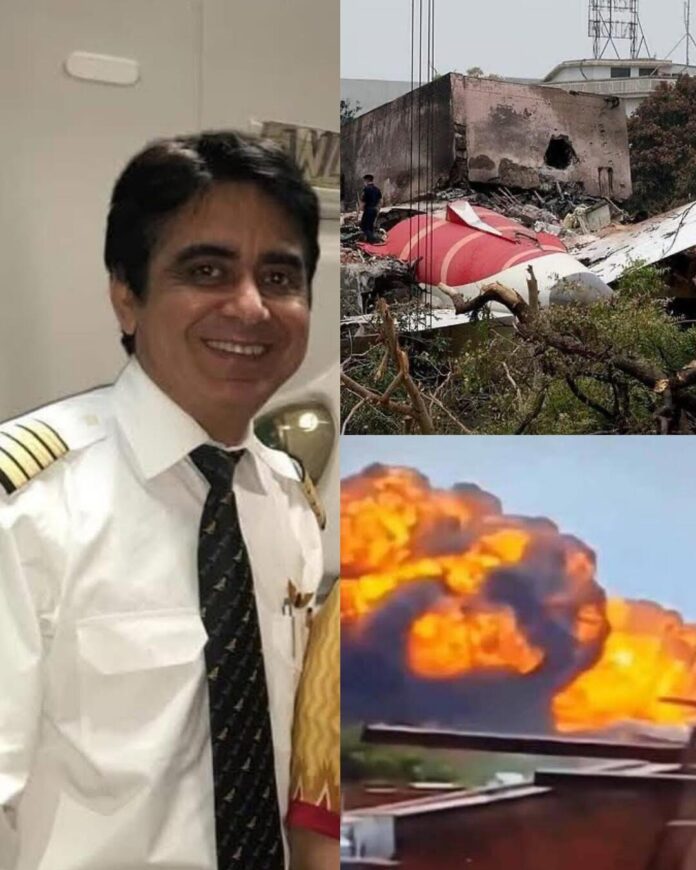NEW DELHI — Investigators are now exploring the possibility that the crash of Air India Flight AI-274 — which went down off the western coast of India earlier this week — may have been the result of intentional actions taken by the pilot, following the recent passing of his mother.
The devastating crash, which claimed the lives of all 260 people on board, is being described as one of the worst aviation disasters in Indian history. While the official cause has not yet been determined, new information has raised serious questions about the mental state of the pilot in command.
“We are not drawing conclusions, but certain data points require deeper investigation,” a senior aviation official said on Friday.
A Sudden Descent Without Distress Call
According to data retrieved from the aircraft’s black box, the plane began a sharp and uncommanded descent approximately 32 minutes after takeoff, despite clear weather and no reported technical issues.
No mayday or emergency communication was sent from the cockpit before impact.
“The descent was rapid and controlled — it does not resemble a mechanical failure,” one official familiar with the flight data analysis stated.
The final cockpit voice recordings, currently under review by international aviation experts, reportedly contain no conversation between the pilot and co-pilot in the final 90 seconds — a silence that is now a key focus of the investigation.
Personal Tragedy Days Before the Flight
Multiple sources have confirmed that the captain, a 38-year-old senior pilot with over 10,000 flight hours, had recently lost his mother after a long illness. He returned to duty just two days later, reportedly against the advice of some colleagues.
“He said he was ready. That flying would help him process the grief,” one fellow crew member told a local newspaper.
Psychological screenings before the flight reportedly showed no signs of distress, but mental health protocols for pilots in India remain under scrutiny, especially when it comes to sudden personal loss.
Airline Responds
Air India has issued a short statement offering condolences to the victims’ families and confirming full cooperation with the investigation:
“We are devastated by this tragedy. Our thoughts are with the families of the passengers and crew. We will await the findings of the investigation and continue to support all efforts to determine the truth.”
They declined to comment on the pilot’s mental health or personal background at this stage.
A Growing Pattern?
If confirmed as an intentional act, this incident would join a small but troubling list of cases in which pilots under psychological strain have allegedly caused fatal crashes — including Germanwings Flight 9525 (2015) and EgyptAir Flight 990 (1999).
Aviation safety analysts are now calling for a review of mental health screening procedures for pilots returning to duty after major personal trauma.
“This isn’t about blame — it’s about prevention,” one expert said.
“We need to ask whether this could have been detected, and stopped.”
What Happens Next?
International teams from India, France, and the U.S. are now involved in analyzing black box data, crew history, and maintenance records. The final report may take several months.
In the meantime, families continue to mourn, and the country watches closely — hoping for answers, and fearing what they might reveal.
